#the triumph of achilles
Text

Louise Glück, “The Triumph of Achilles”
[ID: What were the Greek ships on fire / compared to this loss?]
#louise gluck#the triumph of achilles#achilles and patroclus#mythology#on grief#the world without the secret knowledge of birds
2K notes
·
View notes
Text

[one of Simon Stålenhag’s dystopian illustrations]
* * *
I have to tell you what I’ve learned, that I know now
what happens to the dreamers.
They don’t feel it when they change. One day
they wake, they dress, they are old.
Louise Glück, from section 5 “Night Song” in “Marathon,” The Triumph of Achilles (Ecco Press, 1985)
#poetry#poem#Louise Gluck#The Triumph of Achilles#illustration#Simon Stalenhag#age#aging#dreamers#dream image
57 notes
·
View notes
Text
The Triumph of Achilles
In the story of Patroclus
no one survives, not even Achilles
who was nearly a god.
Patroclus resembled him; they wore
the same armor.
Always in these friendships
one serves the other, one is less than the other:
the hierarchy
is always apparent, though the legends
cannot be trusted---
their source is the survivor,
the one who has been abandoned.
What were the Greek ships on fire
compared to this loss?
In his tent, Achilles
grieved with his whole being
and the gods saw
he was a man already dead, a victim
of the part that loved,
the part that was mortal.
Louise Glück, The Triumph of Achilles (1985)
52 notes
·
View notes
Quote
I feel / no coldness that can't be explained.
Louise Glück, from ‘‘Metamorphosis’’ in The Triumph of Achilles
#louise glück#metamorphosis#the triumph of achilles#extracts#poetry#lit#poem excerpt#fleetling extracts#cold#glück#winter
4 notes
·
View notes
Text

Louise Glück. “Marathon.” The Triumph of Achilles, 1985.
#louise glück#the triumph of achilles#rosy reads#w#on love#anyway thinking about a dystopian au based on the first two sentences
11 notes
·
View notes
Text
the air is getting warmer. with the warm air comes my own loneliness.
summer approaches.
#dark academia#deadpoetsnet#kill your darlings#my post#new poets society#remus lupin#wilbur soot#sleep deprivation#light academia#romantic academia#summer#academia aesthetic#dark acadamia aesthetic#the triumph of achilles
6 notes
·
View notes
Text
buzz "achilles come down" lightyear actually
#something something the fight on the zurg ship and seeing alisha through the haze while zurg seeks to destroy him(self)#'if you're not gonna be me...you're not gonna be anyone!' -> 'you want the acclaim...the mother of mothers...'#'buzz? are you okay?' -> 'it's not worth it achilles! don't listen achilles!'#THROW YOURSELF INTO THE UNKNOWN WITH A PACE AND A FURY DEFIANT!#CLOTHE YOURSELF IN BEAUTY UNTOLD AND SEE LIFE AS A MEANS TO A TRIUMPH!#TODAY OF ALL DAYS! SEE HOW THE MOST DANGEROUS THING IS TO LOVE! HOW YOU WILL HEAL AND YOU'LL RISE ABOVE!#suicide mention /#buzz lightyear#lightyear#lightyear 2022
4 notes
·
View notes
Text
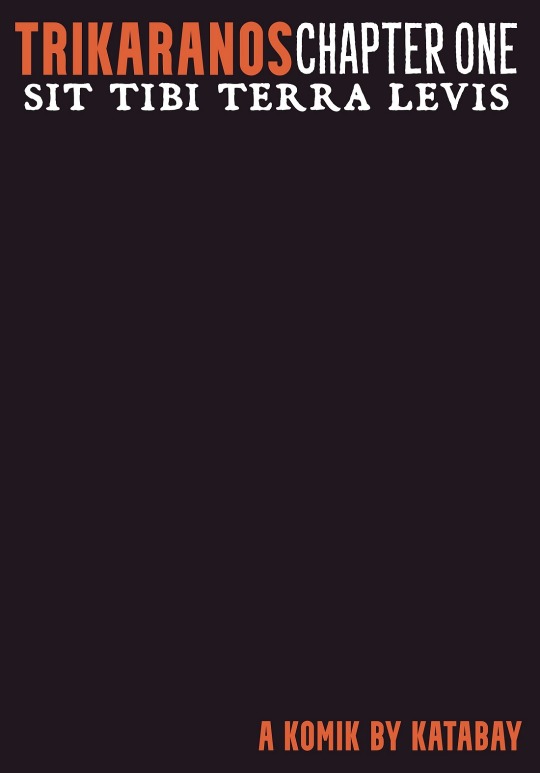
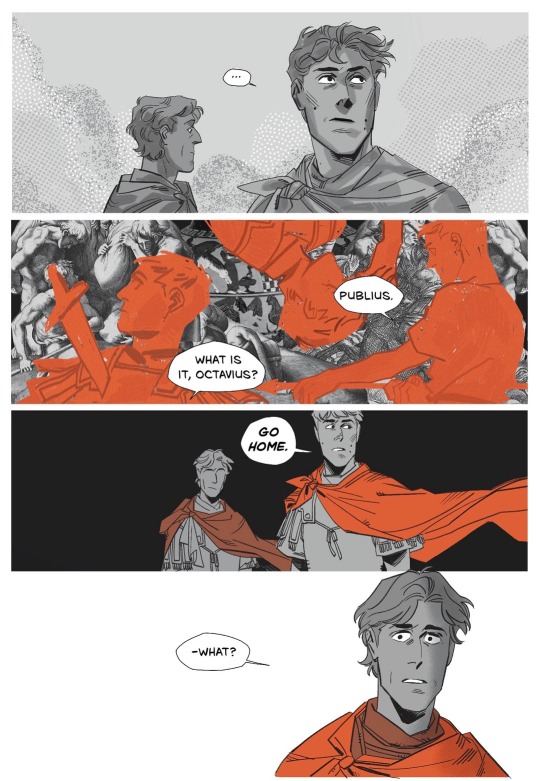
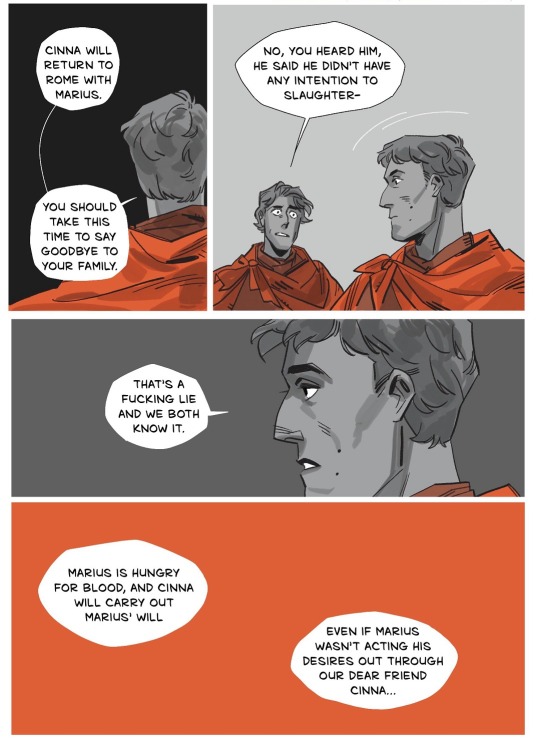
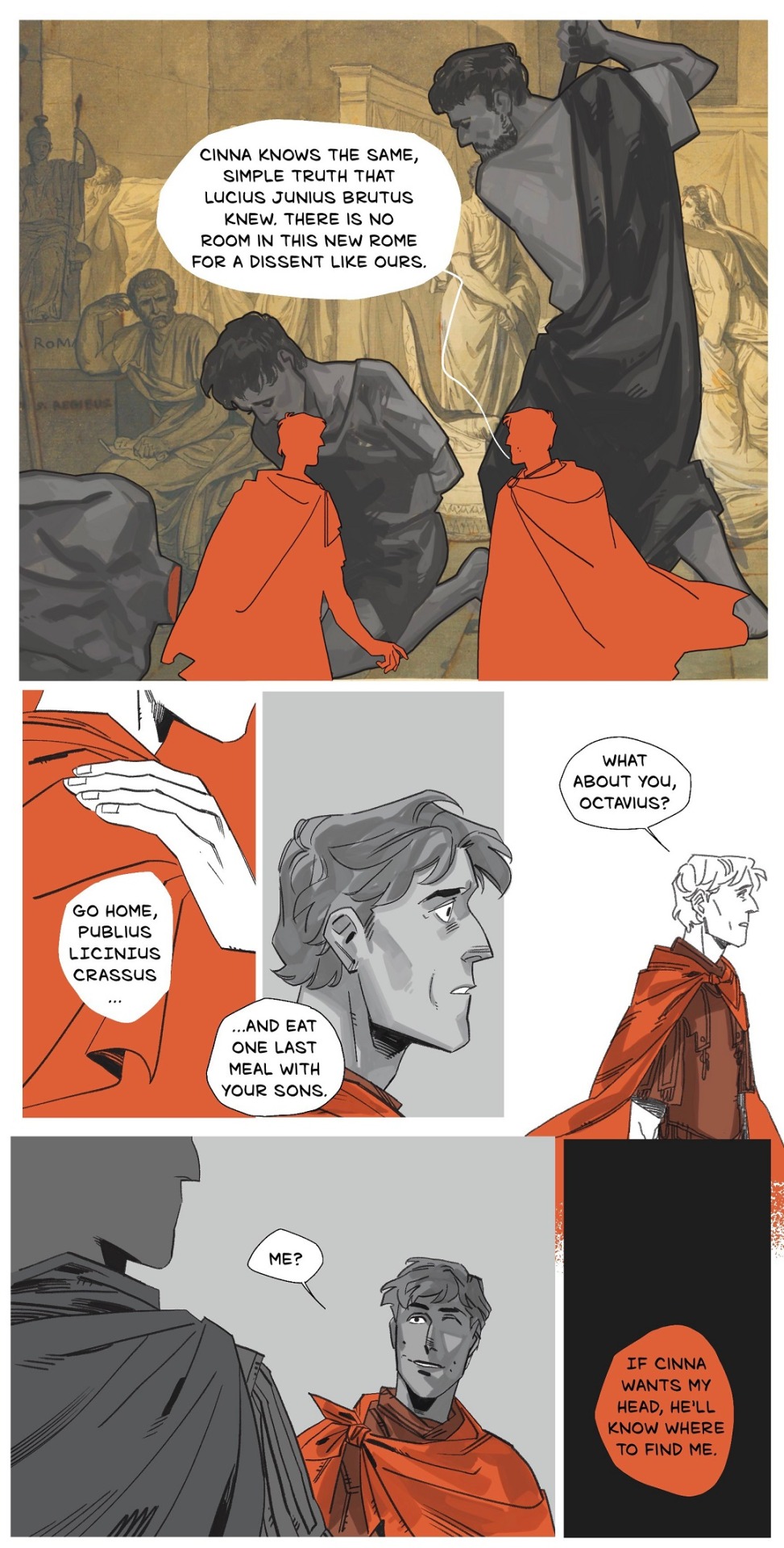
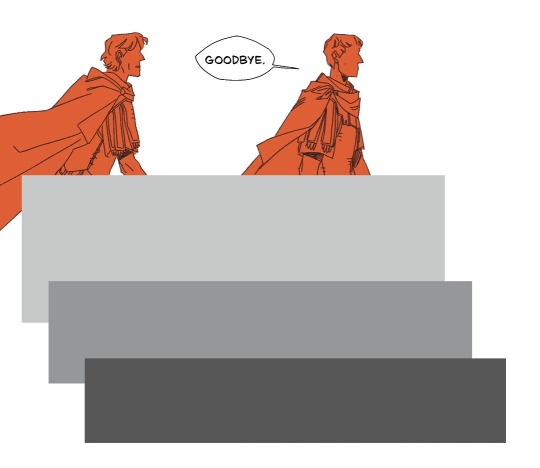
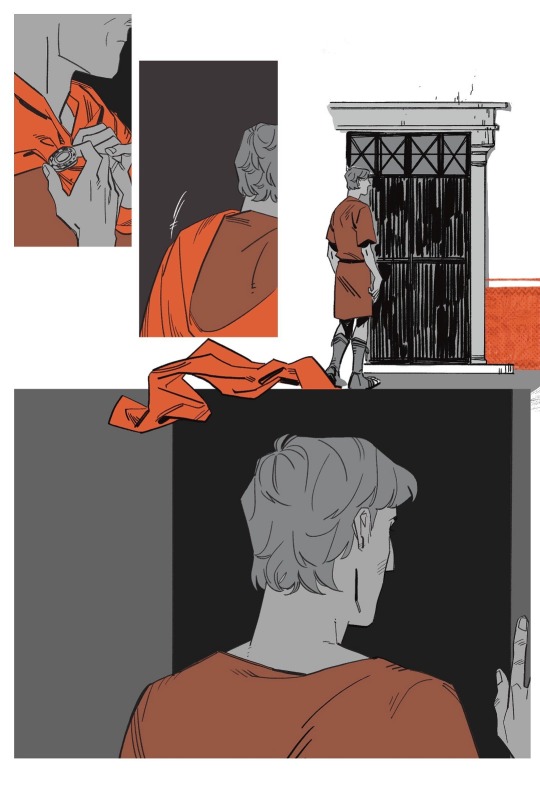
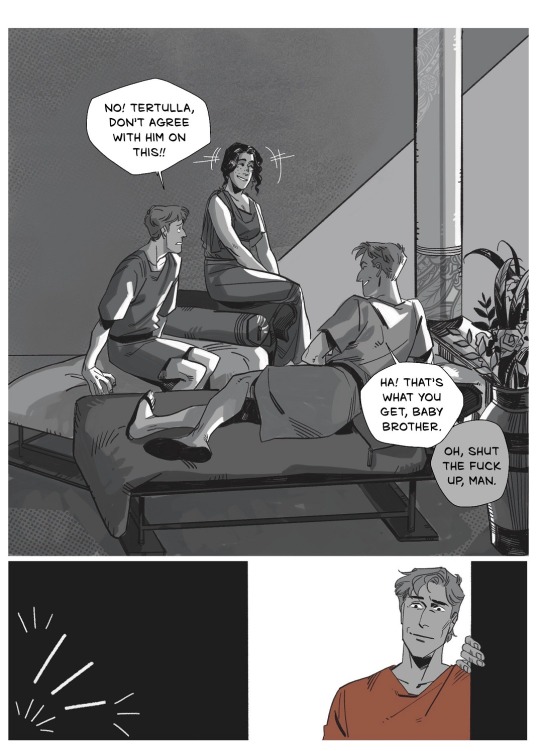
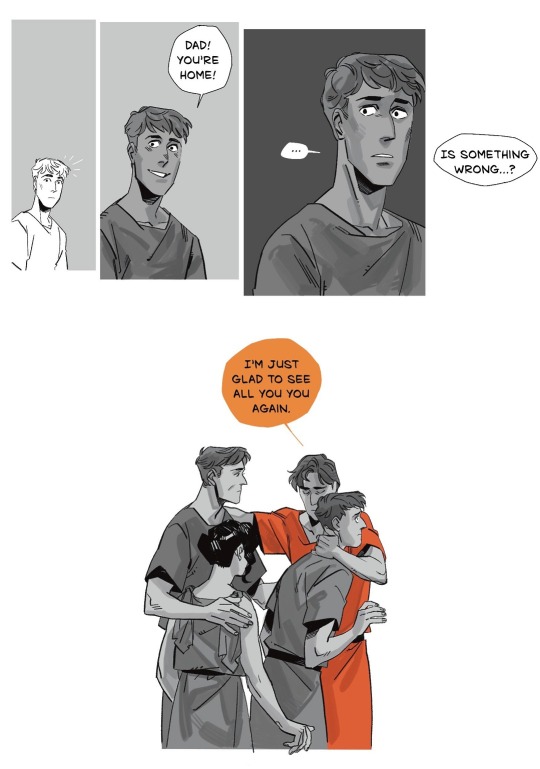
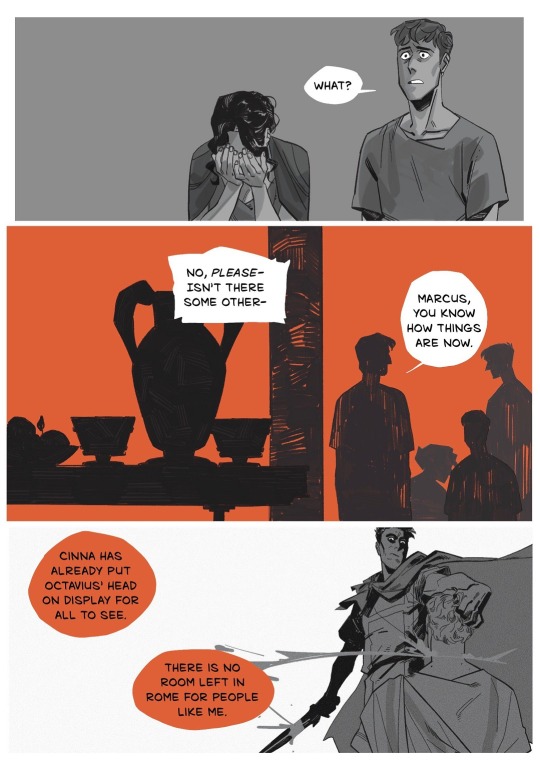
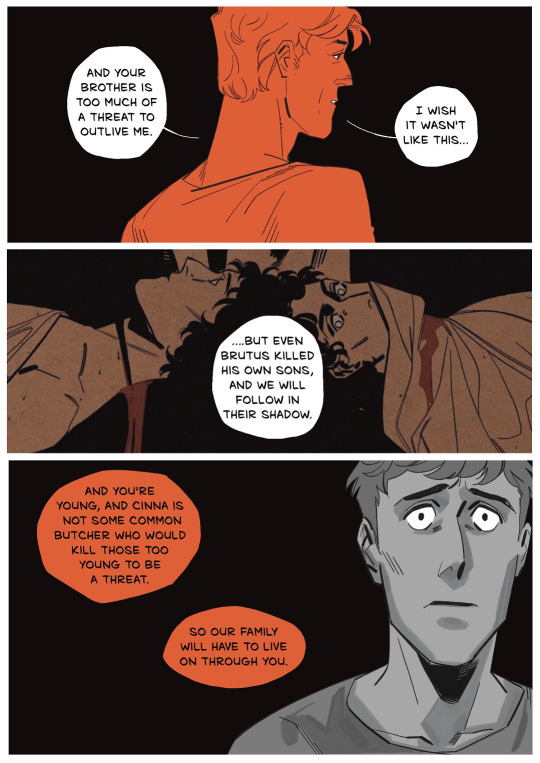
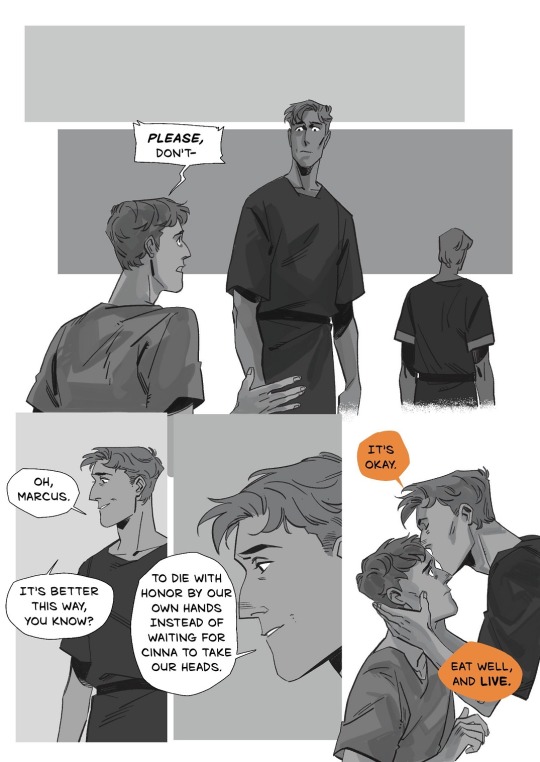
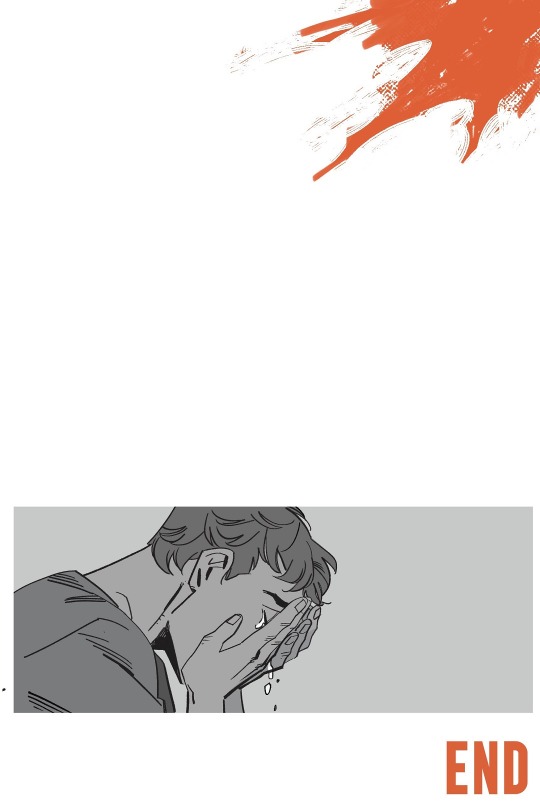
TRIKARANOS CHAPTER I: S·T·T·L
TRIKARANOS is a dramatized narrative based on ancient events following Crassus (and Pompey and Caesar) through the years 87-48 BCE. Intended for an adult audience.
⭐ Trikaranos will always be free to read. In the near future, you’ll have the option to support this comic & my ability to spend time making it (I Am Extremely Fucking Broke And Have Bills To Pay etc etc) through Patreon! currently, I have a tip jar!
⭐ There is no set update schedule (chapters vary in length and will be posted as I finish working on them)
⭐ alternative places to read it (coming soon!)
CREDITS all additional art used are in the public domain, and the specific images used are open access, etc
🍊the first collage panel is combination of: Plate 113: Greeks Battling the Trojans (from Ovid's Metamorphoses), Antonio Tempesta / The Trojans pulling the wooden horse into the city, Giulio Bonasone (after Francesco Primaticcio) / Terracotta hydria displaying Achilles waiting to ambush Triolos and Polyxena
🍊the second collage panel is: The Lictors bringing Brutus the bodies of his Sons, Jacques Louis David / the paint over of Brutus executing is own sons is my own work based on the composition of this relief of Brutus and condemning his sons to death.
🍊I also used my own art: a panel from the Prologue, and my own illustration of Brutus with the bodies of his sons
📖 PREVIOUS CHAPTER | START HERE | ToC (under construction!)
UNDER THE CUT creator’s commentary, ancient citations, whatever else seems relevant. ideally, this is optional! you shouldn’t need the citations for it to make sense as it unfolds since it’s a comic and a story first and foremost, but it’s here if you’re curious about something or want to see where the inspiration is coming from!
I'm so fucking normal about Crassus and his family (<<< this is a lie)
Marcus Crassus was the son of a man who had been censor and had enjoyed a triumph; but he was reared in a small house with two brothers. His brothers were married while their parents were still alive, and all shared the same table, which seems to have been the chief reason why Crassus was temperate and moderate in his manner of life. When one of his brothers died, Crassus took the widow to wife, and had his children by her, and in these relations also he lived as well-ordered a life as any Roman.
Plutarch, Crassus
like, it actively fucks me up that this is something that's survived about him for over 2,000 years. they all ate together at the same table. Jesus Christ.
so! Crassus' dad! Publius Licinius Crassus (consul 97) fought on the side of Cn. Octavius (consul 87) in the Bellum Octavianum, and it didn't go great for him.
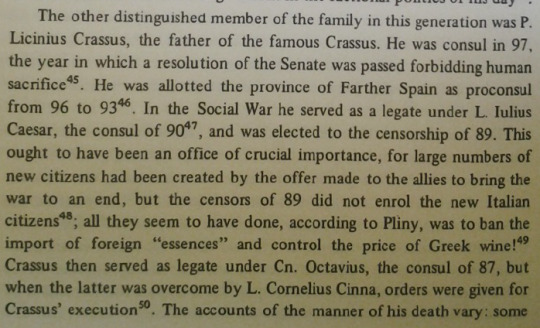
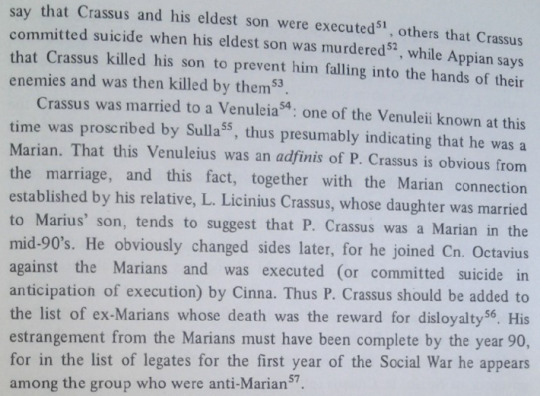
Crassus: A Political Biography, B.A. Marshall
also. currently, if you look Publius Licinius Crassus up on wikipedia for an overview, his page lists his son (and also my main character for this comic) with the cognomen Dives, which is in-fucking-correct.

Marcus Crassus and the Late Roman Republic, Allen Mason Ward
and to circle back to houses and meals shared with family, some citations that made me feel some kind of way when I read them


Marcus Crassus and the Late Roman Republic, Allen Mason Ward
finally, there is discourse or whatever on the placement of the sons of Publius Licinius Crassus. Crassus is the baby brother here simply because I'm writing this story and I get to pick the themes, but also because no one has provided a solid enough argument for him being the second eldest son that I'm willing to buy into with enthusiasm, and I'm more inclined towards G. Sampson's conclusion on the matter.


Defeat of Rome: Crassus, Carrhae, and the Invasion of the East, Gareth C. Sampson
and while I'm just kind of talking about stuff that I read that I enjoyed, this article by Martin Stone lives in my head rent free

A Year of One's Own: Dating the Praetorship of Marcus Crassus, Martin Stone
#trikaranos the komik#hehghghh HELLO i'm back. oof. hgh#if i think too much about them as a family i take critical damage to my hit points
565 notes
·
View notes
Text
the more i think about how we (as both f1blr/f1 fic writers and the more general understanding of f1 fans/the f1 world) mythologise nico rosberg, the more i think i slowly begin to understand why he's such a divisive figure. it's actually not that much to do with taking sides over brocedes and the popularity of lewis hamilton, or even just that some people really really don't like his personality. it's because he's a living symbol of the trauma that motorsports, particularly f1, inflicts upon its participants and embodies it in an almost entirely new and much more viscerally upsetting way.
think about the other people that have had a similar role. many of them are motor racers who died tragically, mostly in some kind of vehicle or after an on track incident. we can mythologise these people in the ancient ways set out by tragic heroes. they have a few subcategories, the dead champions going out in a blaze of glory (senna, rindt, even schumacher in some ways) like achilles. the dead that should have been champions, taken cruelly early and depriving the entire world with their loss, grieved (gilles villeneuve, francois cevert, didier pironi, ronnie peterson, elio d'angelis) like hector. the minor characters who die, who had yet to make any particular impression on the world of motorsport, but whose deaths motivate their loved ones to achieve on their behalf, or inspire rage against a cruel system (roland ratzenberger, jules bianchi, anthonine hubert) like patroclus.
even those that didn't die like that generally bear some sort of physical mark of trauma, like niki lauda's burns and alex zanardi's amputated legs. these figures are held up as triumphs of endurance and willpower when they go on to succeed in motorsport, or elsewhere in sport. if they cannot succeed in some sporting capacity afterwards, then they are allowed to quietly fade into obscurity, like robert kubica and his damaged arm, clay regazzoni, paralysed from the waist down. the trauma of motorsport is understandable when it is rendered physically.
when we render it instead psychologically, emotionally, it becomes incomprehensible to us, uncomfortable for us to entertain. why does someone retire after winning the world championship? because it's dangerous? because you are hurting yourself? in professional sports, people carry around constant pain until their body breaks enough that they can no longer compete, which typically happens sometime in the mid-late thirties, frighteningly early in the average human lifespan. sports is not man vs man or man vs nature so much as it is man vs his own body. this is not the only way competitors hurt themselves, there is constant restriction: food, habits, time. how do you win? see family less, see friends less, practice hobbies less, spend more time training, focusing, studying, converting yourself into the perfect machine.
and then there's the individual traumas: the bridges burnt, the marriages sacrificed, the children neglected, the rival that becomes a nemesis, the best friend that becomes a mortal enemy, the self that becomes lost to become just another part of the car. richard siken says "how much can you change and get away with it, before you turn into someone else, before it's some kind of murder?". and then there's the losses, the disappointments, the criticisms from the team, from the press, from the fans. the constant battering of yourself against wave after wave of grief. the slow erosion of hope for all but a chosen, golden few. the knowledge that even if you win, there will come a point, inevitably, again, where you lose. you a winner until the next race. you are a champion until the next season.
what do we say to someone who says "i want to go home" and means it? who doesn't have to be dragged out of the race kicking and screaming? if they aren't a winner, we say they were never going to be. they are no one of any worth, they will be quietly forgotten. can you name a single one? if they are a winner, though, then what? what does this mean? we snatch at their winnings, their titles, try to take it away, retract it, somehow. but how do you say to them then that they aren't a winner? it is over. it is done.
they leave because they are hurting somehow, and their leaving leaves us hurting. it's betrayal, abandonment of the highest order. we as spectators are part of the race, the system. for nico to leave voluntarily is to criticise somehow, to point out the suffering and say you have hurt me. and we are included in that you, we know it subconsciously. that is why nico rosberg makes us uncomfortable, because he pulls back the curtain, reveals the trickery of it and all of us are suddenly standing in the light.
262 notes
·
View notes
Text
𝐒𝐖𝐄𝐀𝐑 𝐈𝐓.
Pairing: Daemon Targaryen x Reader
Prior to the Dance of the Dragon, the vow between Daemon and his paramour lingered without knowing if it will last.
Inspired by the Song of Achilles, Patrochilles. Credit to Madeline Miller for the quote.
fanfiction | House of the Dragon

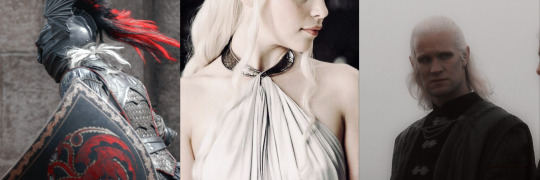

When Rhaenyra had received the tidings of Lucerys' demise, she crumpled at her place, unable to rein in her sorrow. The passing of her offspring, now her cherished child that she held so close to her heart. All hastened to her side, tending to her as she sought solace in her chamber.
The remnants of the young boy and his dragon washed ashore on Dragonstone.
Dread seized you as you bathed in the balmy waters. You chewed at your lower lip, grappling with the impending storm that loomed over all. None shall emerge unscathed. The dragons shall clash and waltz until one prevails and the other succumbs.
The downfall of the dragons was imminent.
Lost in reverie, you failed to perceive the door creaking open, heralding the entrance of the man. Only when his hand alighted on your shoulder did you startle with a soft gasp.
"'It is me, my love." His rich voice banished the tumultuous thoughts. You lifted your gaze to meet his, discerning the unease mirrored in his eyes; he too foresaw the looming conflict.
A hush fell upon you both as you reclined against his embrace, swallowing the lump formed in your throat. You prayed that neither of you shall meet a grim fate. The throne could fall to the Greens, yet your sole concern was your beloved.
Daemon tenderly kissed your temple. "You are tense," he observed, caressing your shoulder blade. "Tell me your worries." A gentle plea. He had never been unkind to you. Never.
You spoke, "Daemon, war is on the coming. Lucerys shall be avenged one way or another, and I dread it shall claim us both." The chamber was filled with a hushed breeze, engulfing the palpable tension and fear that gripped you so tightly. The water now felt icy to the touch, unlike its previous warmth, unlike his touch.
The Prince remained silent, pressing another kiss on your temple. After a pause, he murmured, "In the end, we all meet our demise, my love. Such fears need not consume you. War was inevitable when that drunk cunt of a king seized Rhaenyra's throne in our absence." Yet his words failed to offer solace as intended.
Turning towards him, you twisted your body to face his. Tears once concealed now brimmed in your eyes as you clasped his hands. "I care not for the Greens or the throne. Death does not faze me. It is our parting that I dread. I cannot bear to be parted from you, plagued daily by fear for our safety." Your words were a soft whisper, tinged with regret at the tremor in your voice. How could you rein in your emotions when his life hung by a thread much like yours?
The Prince knelt closer, his eyes reflecting a love unmatched. "The gods are cruel. They shall never grant you lasting joy and triumph."
Drawing nearer, relishing his words, you leaned into his gaze.
"I'll tell you a secret" he raised your chin, locking eyes with you. "I shall be the first." Boldness shimmered in his gaze, deepening your affection for him. "Swear it."
"Why me?"
"You are the reason. Swear it."
Enveloped in fervent love and unwavering devotion to him, you uttered a vow that would alter your lives forever. "I swear it."
A grin played upon his lips.
"I feel like I could eat the world raw."
#daemon targaryen#daemon x reader#daemon targaryen x reader#the rogue prince#house of the dragon#asoiaf#x reader
218 notes
·
View notes
Text
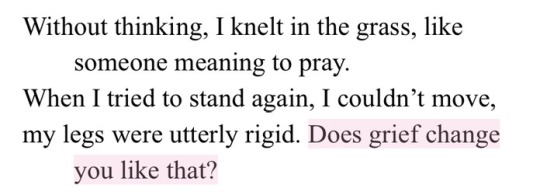
Louise Glück, “Marathon,” from The Triumph of Achilles
[ID: Without thinking, I knelt in the grass, like / someone meaning to pray. / When I tried to stand again, I couldn’t move, / my legs were utterly rigid. Does grief change / you like that?]
#louise gluck#the triumph of achilles#on grief#poetry#the world without the secret knowledge of birds
25 notes
·
View notes
Text




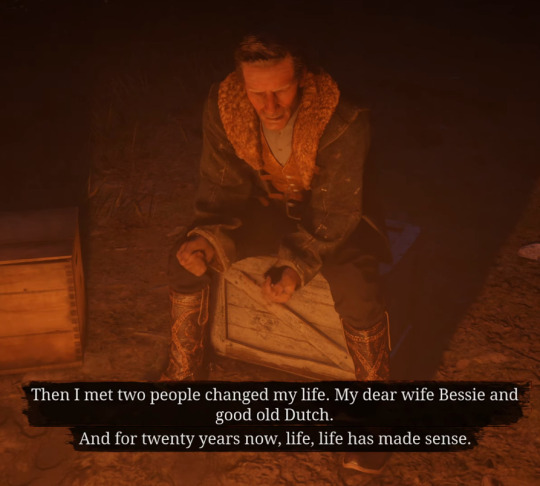
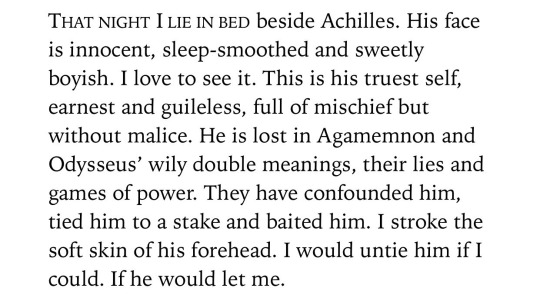
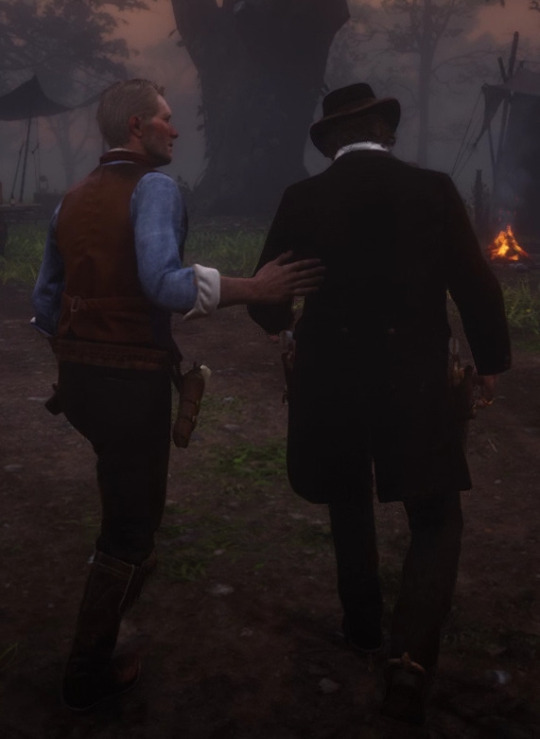

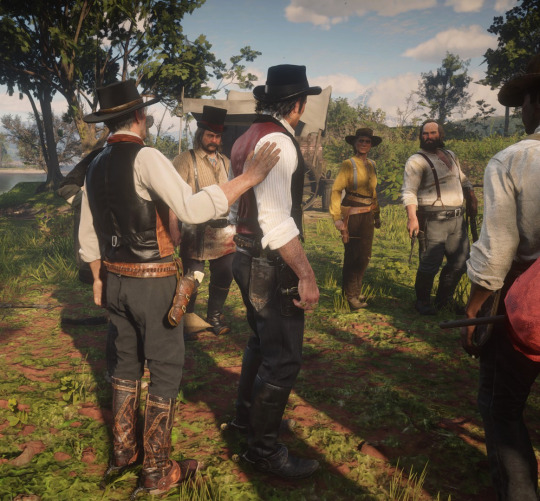

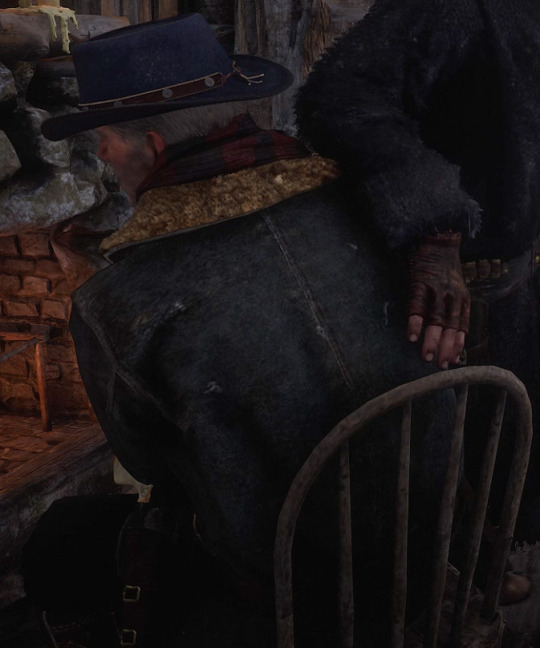


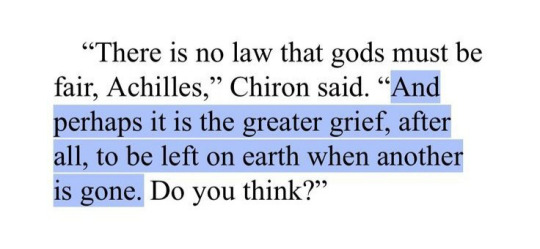
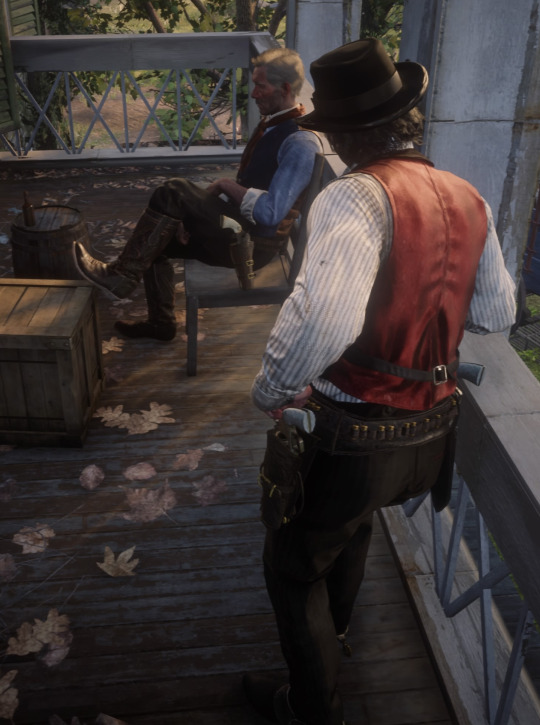
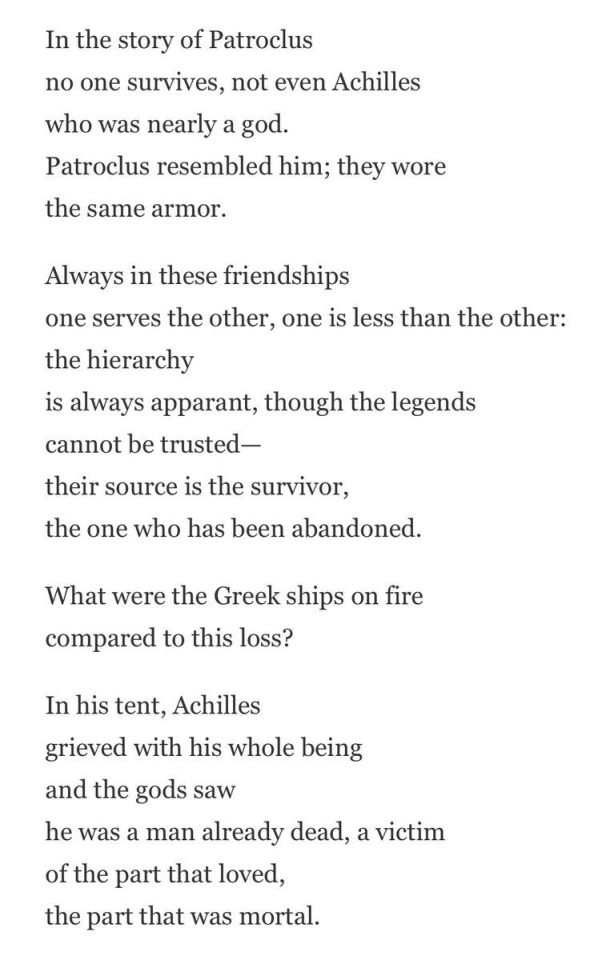
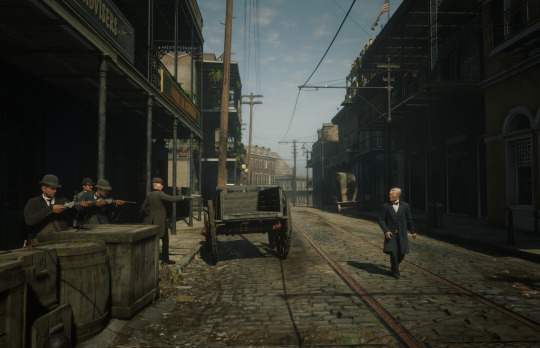
vandermatthews photos alongside quotes about achilles and patroclus
creds to; @/oldstormyy, the song of achilles by madeline miller, louise glück "the triumph of achilles", the illiad by homer.
382 notes
·
View notes
Text

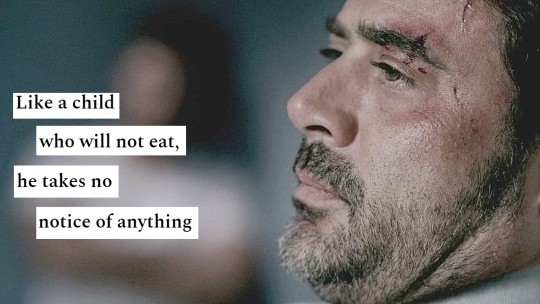




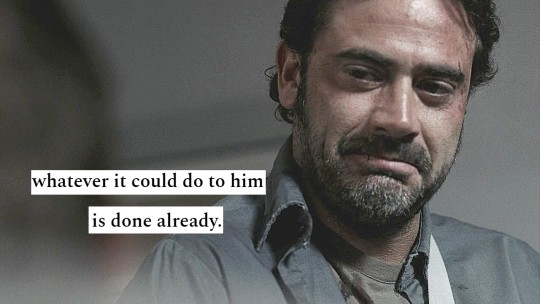
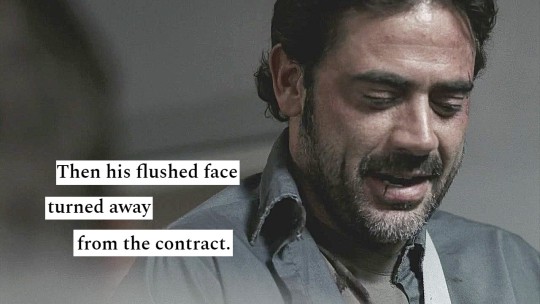
'metamorphosis', the triumph of achilles, louise glück / supernatural (2005-2020) cr. eric kripke
#supernatural#spn#spnedit#john winchester#dean winchester#jeffrey dean morgan#jensen ackles#louise gluck#louise glück#mine#mww#spnww#comparative#comparatives#web weave#web weaves#web weaving#web weavings
235 notes
·
View notes
Text
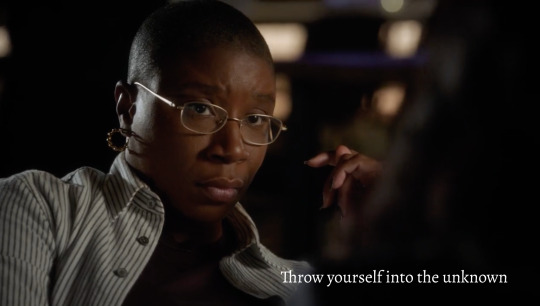

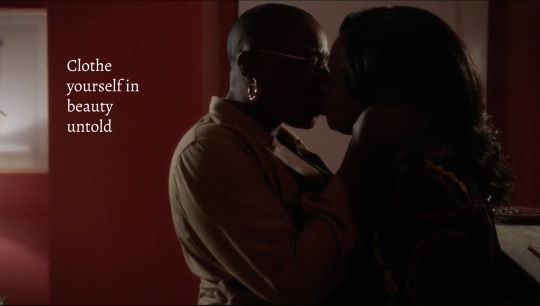




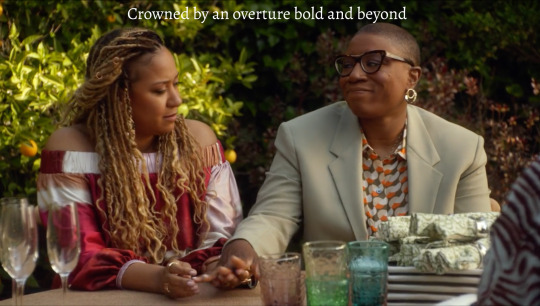
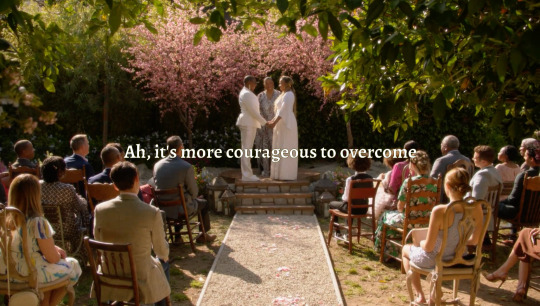
Henren - Achilles Come Down by Gang of Youths (Part 5)
Throw yourself into the unknown
With pace and a fury defiant
Clothe yourself in beauty untold
And see life as a means to a triumph
Today, of all days, see
How the most dangerous thing is to love
How you will heal and you'll rise above
Crowned by an overture bold and beyond
Ah, it's more courageous to overcome
And with that, this series is done :)
You can find all of them here
#henren#henrietta wilson#karen wilson#911 abc#911 fandom#911 edit#911edit#henren edit#achilles come down#purple edit
193 notes
·
View notes
Text
Sooner or later / you'll begin to dream of me.
Louise Glück, ''Marathon'' in The Triumph of Achilles
#louise glück#first goodbye#marathon#poetry#poem excerpt#fleetling extracts#extracts#lit#the triumph of achilles#glück#dreams#dream
3 notes
·
View notes
Text
been thinking about Medea lately, and I think I’ve finally figured out why the attitude of “wow Medea was right, go off queen” (e.g. this post) really gets on my nerves: I think it’s sexist!
like, let’s be absolutely clear: Medea’s actions at the end of the Euripides play are deeply, deeply evil. Jason and Kreon treat her horribly, and there’s no excuse for their behavior, but like...Medea slaughters two innocent children and an innocent woman in cold blood, not to protect herself or someone else, but to ensure Jason’s suffering. that’s evil.
the idea that Medea could possibly be justified in such an action fundamentally requires us to hold her to a lower moral standard than a man in her same position. the implication is that Medea’s experience as a woman in Greek society entitles her to revenge at any cost: she has been wronged, so punishment is hers to exact. we don’t consider this acceptable when Achilles is asserting that his grief over Patroclus entitles him to the emotional torture of Priam, and in fact the great human moment of the Iliad is Priam’s plea to Achilles to return Hector’s corpse. same moral standard applies to Medea. her rage over her mistreatment is not the problem: her violence against innocent people in an attempt to drag Jason down with her is.
which is not to say that I think Medea is a one-dimensional character! I think Euripides was really onto something with the way Medea agonizes over what to do during the play, by turns committing to this great evil and shrinking back in horror at what she’s contemplating. I also like the emphasis he places on Medea’s divine origins, her connection to the world of the gods via both her bloodline and her practice of magic. it creates this sort of dualism in her character: there’s Medea the human woman, who’s deeply in love with Jason and in agony at his betrayal, who loves her children and is terrified of what will become of them, and of her, once she’s forced to leave Corinth. this Medea is angry and scared, helpless to save herself or her children, helpless to make Jason understand how badly he’s hurting her.
and then there’s Medea daughter of the sun, Medea the hero, whose response to Jason’s betrayal is to make his life a living hell. except Medea-daughter-of-the-sun and Medea-the-human don’t exactly share the same value set: the former is the latter with all of her humanity stripped away, whose purpose is wholly aligned towards divine justice. but divine-Medea is powerful, and if human Medea only lets her, she can make damn sure that neither of them ever feel helpless again.
honestly my ideal version of the play is a tragedy about Medea’s fall, whose central tension is whether the human part of her will give in to the divine part of her under the stress of betrayal and rejection. at the end of the play, Medea gets everything she ever wanted (power, glory, fear, vengeance)-- all it costs is her humanity. but I think that only works if you frame Medea’s actions at the end of the play as horrific, rather than a triumph; if you take the morality of her actions seriously, as opposed to justifying them prima facie because she’s been through hell.
692 notes
·
View notes